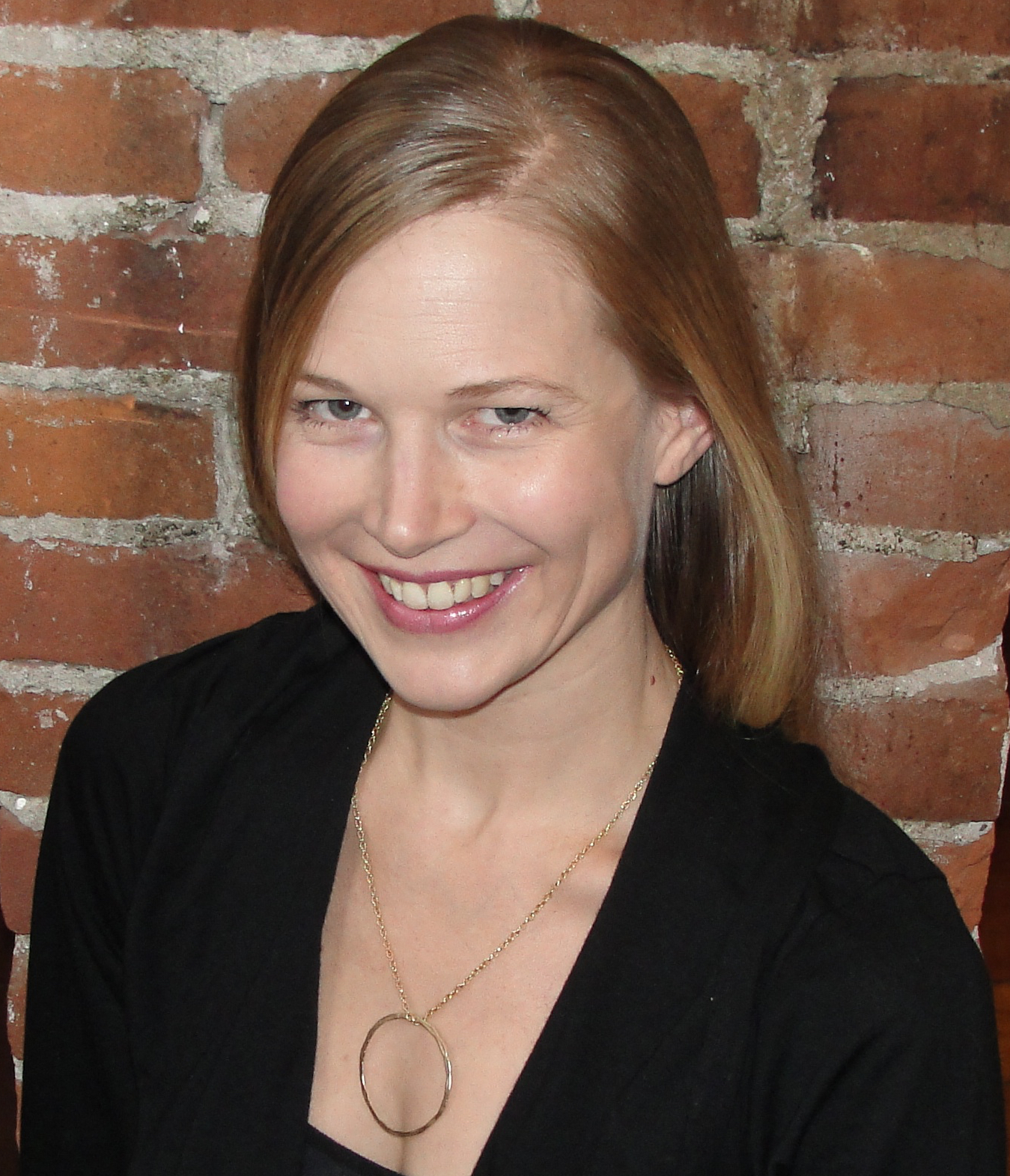 Woo hoo! Strap yourselves in, ladies and gents, because you’re going on a ride today as we get to know Emily June Street, author of the new epic fantasy The Gantean. I know Emily from her flash fiction from the weekly Flash Friday Fiction contest, so I know the superb quality of her prose. I’m not normally an epic fantasy reader, but you can bet I’ll be delving into The Gantean when it releases Saturday (but you can pre-order it right now)!
Woo hoo! Strap yourselves in, ladies and gents, because you’re going on a ride today as we get to know Emily June Street, author of the new epic fantasy The Gantean. I know Emily from her flash fiction from the weekly Flash Friday Fiction contest, so I know the superb quality of her prose. I’m not normally an epic fantasy reader, but you can bet I’ll be delving into The Gantean when it releases Saturday (but you can pre-order it right now)!
Give us a three-sentence summary of The Gantean.
After she is violently kidnapped from her stark existence on the cold island of Gante, Leila must learn to survive in a southern culture that her native people hate. In the south, exotic temptations greet her at every turn: rich flavors, profligate magic, and dangerous love with a forbidden man. As a civil war threatens, Leila has to choose between southern love and northern rituals—but at what price?
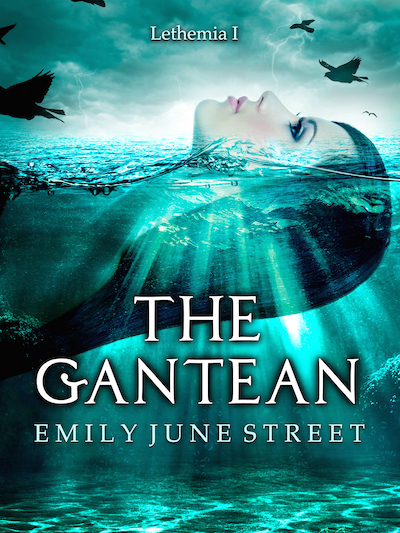 Where did the idea for The Gantean come from? How long did it take you to craft such an intricate fantasy world?
Where did the idea for The Gantean come from? How long did it take you to craft such an intricate fantasy world?
Don’t laugh, but the idea for The Gantean came to me when I was twelve, and I was told in class to write a story. I started the story with a girl on a cold northern island, watching the sea as a foreign ship crested the horizon. My character ended up being a prophesied “chosen one” in the typical fantasy narrative that I’d read so often at that time in my life—though always with heroes rather than heroines. Since then, the story has changed tremendously, of course, although I still have the original handwritten draft. I’ve rewritten the book over and over again over decades and written other books in the world, too. The world-building aspect of the story is always a work in progress, always changing depending on what different characters reveal and the needs of the story as it grows.
What authors have most influenced your own writing?
This is such a difficult question. I’m not sure how much others’ great writing can penetrate this thick skull, but I have admired many writers over the years. I’m a voracious reader, and I read widely. I do wish that I could pick up tight, smart prose by osmosis, but unfortunately, developing that skill isn’t so easy. So here are some writers I love to read, always hoping they’ll influence me, though I’m well aware that brilliance can’t really rub off just through reading: Margaret Atwood, for stark and intelligent prose; Carol Berg, for fantasy world-building and intricate plotting; Colum McCann, for building deep internal worlds for his characters; Tana French, for deft structure and timing; Toni Morrison, for economical and beautiful sentences packed with meaning. That’s an all-star team that, in my wildest dreams, would influence me. More directly, my writing partner/critique buddy Beth Deitchman influences me because she is my first reader who interacts deeply with my work. She’s great at helping my writing get clean and clear. She blends a perfect combination of creative looseness and literary rigor.
You write novels and you write flash fiction. Which do you prefer? Do you think one influences the other?
My brain thinks in novels. My ideas are big and complicated. I find flash fiction really difficult, because every idea I have feels larger than a few hundred words. I’m still trying to figure out how to narrow the focus in such short works. Also, I think I have a plain writing style, stripped down and not very poetic, which doesn’t always work, because you have to put the flash in flash fiction, right? I got into flash fiction because my critique buddy Beth Deitchman sent me a prompt from Angry Hourglass showing a beat-up bicycle. I love bicycles, and I wrote a whole novel about my love of bicycles called Velo Races, so the prompt was a natural starting point for me. I liked the challenge of being economical with my words and my story, and I recognized short writing as a good exercise, but it really is like eating my Brussels sprouts without bacon. Good for me, but not my great love. I will always be a writer of novels. That’s what I love; that’s my bacon.
You run a publishing company, Luminous Creatures Press. How does that inform your own writing? And how the heck do you find time to write, with how many other things you do?
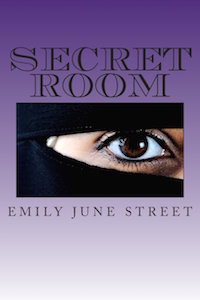 Luminous Creatures Press began as a way for my writing partner and me to self-publish our work, together. We put out some collections of short stories as practice runs, and then I put out Velo Races, my bike novel, and a second novel called Secret Room. Beth published her novellas set in the world of Jane Austen’s Pride and Prejudice. Self-publishing is still our primary focus, but we are experimenting with avenues for publishing other authors, too, and hosting our own flash fiction contests a few times a year, the results of which we sometimes put out in book form. I do freelance editing and formatting under the umbrella of Luminous Creatures Press. Reading other peoples’ work always teaches me, and editing rougher, less polished pieces is just as educational and important as reading the great published works—it teaches me how to develop something from the ground up.
Luminous Creatures Press began as a way for my writing partner and me to self-publish our work, together. We put out some collections of short stories as practice runs, and then I put out Velo Races, my bike novel, and a second novel called Secret Room. Beth published her novellas set in the world of Jane Austen’s Pride and Prejudice. Self-publishing is still our primary focus, but we are experimenting with avenues for publishing other authors, too, and hosting our own flash fiction contests a few times a year, the results of which we sometimes put out in book form. I do freelance editing and formatting under the umbrella of Luminous Creatures Press. Reading other peoples’ work always teaches me, and editing rougher, less polished pieces is just as educational and important as reading the great published works—it teaches me how to develop something from the ground up.
As far as time management goes, my life is organized and routine-oriented; that’s the only way I can keep all my balls in the air. My real-life, everyday profession is teaching Pilates. I run a big studio in Marin County with my husband. That takes up the vast majority of my time. I teach Pilates seven days a week, 363 days a year. Having that regular, relentless schedule actually helps me with writing, because when I do have time to write, it’s an explosion—I want to do it so badly, it just pours out. That said, my schedule is difficult—I can only get new writing done two or three days a week. I edit in the little bits of time between appointments or whenever I have a spare hour. I get up early to work, and I don’t sleep as much as I probably should. I’m not complaining—it’s good problem to have, being hungry for more time because you love everything you do so much. I’m grateful to have the privilege and the freedom to be creative.
What’s the one piece of advice you’d wished you had when you started writing?
No one ever gave me this piece of advice, but I figured it out over the course of rewriting The Gantean so many times. HAVE A PLOT PLAN, even if it’s only a few hastily sketched directives on post-it notes. Have a sense of what the story is about on its deepest level and use that to shape where the story goes.
What’s your take on the traditional vs indie discussion?
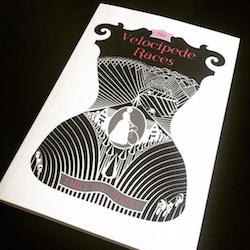 My basic take on it is: do what pleases you. Experiment. Try everything. Deciding which way to go is a personal choice, and may have to do with goals for a given book or goals for personal development. My book, Velo Races, was originally self-published, but it has been picked up by Microcosm Publishing to be revised and then re-published by them. I’ve had a great time working with them to make something bigger and better than the original. The traditional route pushes me out of my comfort zone. As a time-challenged introvert, marketing is hard for me. I don’t like to spend my precious time doing it, and it isn’t a satisfying experience. I’m not someone who likes to garner attention. I’d much prefer to stay holed up, writing, but with a book being produced traditionally, I feel more pressure to put myself out there. With self-publishing, I can just do the parts that I love, writing and making books, and the marketing can flow more organically. I’m extremely glad to have some experience working both ways. It’s helped me understand my motivations for writing and helped me clarify what I want. I’ll keep going with the hybrid route, doing some self-publishing and some traditional. Spanning the two worlds suites me, perhaps because I’m a Gemini? For whatever reason, I like to work with dualities.
My basic take on it is: do what pleases you. Experiment. Try everything. Deciding which way to go is a personal choice, and may have to do with goals for a given book or goals for personal development. My book, Velo Races, was originally self-published, but it has been picked up by Microcosm Publishing to be revised and then re-published by them. I’ve had a great time working with them to make something bigger and better than the original. The traditional route pushes me out of my comfort zone. As a time-challenged introvert, marketing is hard for me. I don’t like to spend my precious time doing it, and it isn’t a satisfying experience. I’m not someone who likes to garner attention. I’d much prefer to stay holed up, writing, but with a book being produced traditionally, I feel more pressure to put myself out there. With self-publishing, I can just do the parts that I love, writing and making books, and the marketing can flow more organically. I’m extremely glad to have some experience working both ways. It’s helped me understand my motivations for writing and helped me clarify what I want. I’ll keep going with the hybrid route, doing some self-publishing and some traditional. Spanning the two worlds suites me, perhaps because I’m a Gemini? For whatever reason, I like to work with dualities.
What’s next in your writing career? Is The Gantean a stand-alone novel, or will it continue? Perhaps a trilogy?
Hahahahahaha! A trilogy! If only! The Gantean is part of a series of seven books. All of them are drafted right now. The next book in the series, called The Cedna, is tightly connected to The Gantean, and so I consider those two books a duet within the seven-book series. Then Book Three is stand-alone, in terms of its plot. After that, things get messy. Books 4-7 are tangled in a big, complicated knot, as yet unraveled. I’m not sure how to structure them to best tell the conclusion of the story, so I’m ripping them apart and putting them back together in various ways right now. I’m hoping to release Book Two, The Cedna, later this year and Book Three sometime in 2016.
Want to connect with Emily? Find her here:
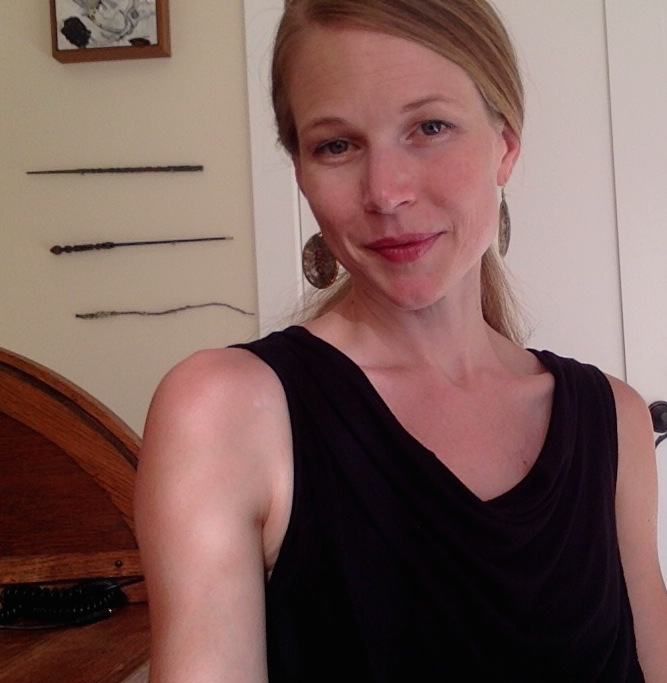 email: emily@luminouscreaturespress.com
email: emily@luminouscreaturespress.com
Twitter: @EmilyJuneStreet
Facebook: https://www.facebook.com/emily.street.378
WordPress: https://emilyjunestreet.wordpress.com/
Luminous Creatures Press: https://luminouscreaturespress.com/
My Amazon Book Links:
The Gantean: http://www.amazon.com/Gantean-Tales-Blood-Light-Book-ebook/dp/B00ZJOV0SI/
Velo Races: http://www.amazon.com/Velo-Races-Emily-June-Street/dp/1507535678/
Secret Room: http://www.amazon.com/Secret-Room-Emily-June-Street-ebook/dp/B00LUCZZIE/
Other file formats:
Velo Races: https://payhip.com/b/n54k
Secret Room: https://payhip.com/b/O2wv
Whew! What a wonderful interview – I’m so glad you took the time to join us today, Emily. We wish you the best of luck with The Gantean – and all the marvelous books to follow!
